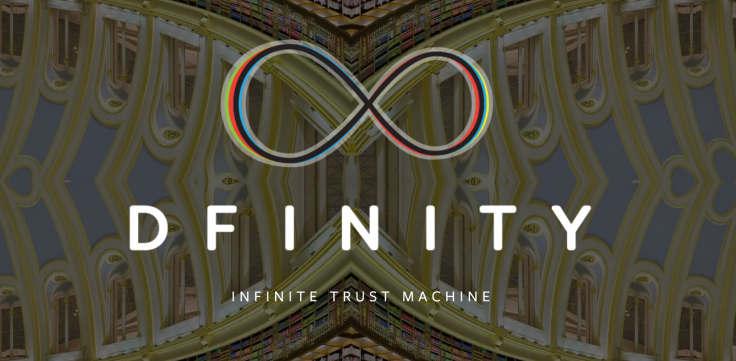Blockchain and cryptocurrency to watch out for in 2018
AI and data sharing, green crypto mining, magical blockchains and a new 'World Computer'.

It's that time of year again, and in keeping with tradition, here are some promising blockchain technologies to watch out for in 2018.
AI and blockchain
You can hear an insistent murmur about how the two most exciting technologies of the moment – blockchain and artificial intelligence – can be married. At the protocol level, blockchains need to be highly deterministic so sticking a machine learning black box in the middle is not a recommended strategy – not yet anyway. What's often talked about is AI-driven data analytics being leveraged in a trading capacity, so crypto-hedge funds and so on.
However, a much more interesting play concerns the way blockchains can be used to share data. Data is the essential ingredient in creating effective AI, which makes data the most valuable naturally occurring resource on the planet. A small but growing number of interesting startups are clustering around the data sharing use case.
For example, the OpenMined project is addressing the current problem of having to centralise data to train a machine learning model, using a combination of homomorphic encryption, multi-party computation and blockchain.
With vital applications like healthcare in its sights, OpenMined seeks to allow large groups of individuals to train intelligence without needing to ever reveal the contents of their data, and to use blockchains to potentially rent out their data and access cashflows of the downstream intelligence trained on it. In terms of blockchain flavours, OpenMined is planning to dual-release its alpha version on both the Ethereum and Tendermint testnets.

Another super-interesting blockchain/AI project is Ocean, the brainchild of Trent McConaghy, founder of BigChainDB. Ocean aims to democratise data with its data marketplace protocol and network, making it accessible to a much broader set of people while still respecting privacy.
The web of today is peppered with gargantuan data silos locked within large highly centralised corporations, like Google and Facebook, which are shamelessly monetising our data. At the same time these entities are creating ever more powerful AI to retain their dominance in the future. McConaghy asserts the need for a global data commons – data that ought to be out in the open, free for anyone to use.
McConaghy's team is based in Germany where a large number of the world's major car manufacturers have headquarters, and recently announced it is working with Toyota Research Institute. Ocean's technology could give car companies a way to pool their data with their competitors and offer a cost-effective way to reach the scale they need in self-driven miles. This could give them a shot at catching up with Google, which has more self-driven miles (and therefore better self-driving AI) than anyone else.
Green crypto mining?
BitTorrent inventor Bram Cohen says next year we can expect his new cryptocurrency, Chia, to emerge from the bushes. Chia Network uses vacant disk space on hard drives to run a modified version of proof of space (PoSpace), co-ordinated with another consensus algorithm, proof of time (PoT). The goal is to prevent the sort of energy sapping, ASIC-powered centralisation which has happened in Bitcoin.

A criticism levelled at Cohen's plans for ASIC-resistant mining protocol is that proofs of time can most definitely be optimised in hardware. In other words, the party who has the fastest PoT is also a major potential source of centralisation in the system.
But Cohen believes there are substantial reasons for optimism. The physics of electronics are such that they tend to hit a certain limit of clock speed and max out, basically hitting the limit of what can be done with silicon. PoS plus PoT, as implemented in the Chia Network, could lead to potentially useful chip design R&D and when combined with a number of other crypto-economic factors, can mitigate against large scale for-profit pool mining, he says.
Mimblewimble and the Grin blockchain
The Grin blockchain is a reference to Gringotts Wizardly Bank from Harry Potter. The people behind the project use identities of Harry Potter characters. One person known to be connected to the project is Blockstream mathematician Andrew Poelstra, who discovered Mimblewimble's interesting properties while exploring compression techniques to try and help scale Bitcoin.

Mimblewimble maintains that if a transaction output is spent, you no longer have to keep it because the spend cancels out the receive. Despite this, verifiers are still able to authenticate ownership of keys to authorise transactions, and show the sum of outputs minus the inputs equals zero and no new money has been created.
Poelstra said: "If one transaction spent an output of the other, then in those two equations you'd have the same term on both sides and you can just delete them outright. And you retain the correct authentication in that the owners of those outputs definitely had to be involved to have spent those coins. But there is no longer any need to see or validate that those coins actually existed, which is really quite something."
We can hope to see the Grin blockchain with its native Grin currency being tested later into 2018.
Dfinity and beyond
Inspired by Ethereum, the Dfinity "World Computer" aims to host the world's business logic and data using an open blockchain design that can securely increase its capacity on demand. Built on this foundation will be all sorts of decentralised apps, decentralised finance, social media and large scale open source businesses to compete with traditional intermediaries like eBay and Uber – at a fraction of the cost.
Back in 2015, Dominic Williams, founder and president of Dfinity, had an idea about generating random numbers in a decentralised network with cryptography and then using those random numbers to drive other protocols. It seemed like a principle he could use to create a world computer that would be very highly performant and secure.
Williams said: "It's not just about creating that kind of new generation of decentralised systems, the aim is to knock 80% off the costs of developing business systems and compete with the traditional IT stack, which we think is completely obsolete."
Dfinity originally promised to do an initial coin offering (ICO) towards the end of 2017, but Williams decided there have been so many dubious ICOs that he didn't want to associated with the whole thing. Kudos.























